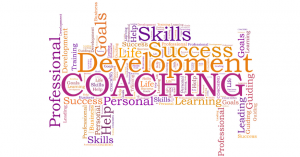
A trusting team is a team made up of people who feel safe around each other—safe expressing their feelings, asking for help, talking about problems, and admitting to mistakes. Simon Sinek
Successful leaders have learned how to spark trust and keep it growing. They know trust builds credibility over time.
They’ve also learned the hard way that one wrong decision or withholding important information can diminish trust. To improve trust, some leaders have had to alter their management style. For example, stop micromanaging, demanding too much, and playing office politics at the expense of others. These are trust killers, not trust builders.
How to Spark Trust
Trust Your Team. First, you must trust your team members. It doesn’t mean you overlook half-truths, missed deadlines, or poor quality. If someone says they cannot get a task done by a specific time, listen and ask, “What do you need from me?” Team members that feel trusted will go above and beyond to achieve the intended results.
Learn from Mistakes. Everyone makes mistakes, including you! Yelling or expressing frustration at team members will not build trust! (If you do this, it’s time to hire an executive coach to learn new ways of expressing yourself!) Instead, together, conduct an objective review of “what worked/what didn’t work?” Acknowledge things that were well-done. Then, specifically, address two things to improve. Use your natural curiosity and ability to ask good questions to guide the team to build new solutions. The process will build trust (and respect) for you as a leader and team synergy.
Embrace Tough Conversations. Most leaders will do anything to avoid them. But if you don’t uncover the underlying factual issues, progress on projects will fail. The team will stop trusting you, and mischief and finger-pointing will erupt–spark trust. Instead, encourage resourcefulness and brainstorming of new ideas, and champion your team’s ability to work through conflict or issues.
Be Known for Straight Talk. Say what you mean and mean what you say. Allow others the freedom to do the same, to disagree with you and others without repercussions. This makes THE difference between your team trusting you to look out for them or feeling manipulated to get the job done (while not believing a word you have to say). When a project has not met the customer’s needs, tell the truth about why. Avoid spinning the facts to make yourself look good and your team feels good. Remember, they want to learn and grow.
Brag about Your Team! Sharing successes about each and every team member makes a positive difference and builds trust. Be aware of each team member’s contribution … no matter how small. When speaking with others, brag about your team’s successes and mean it!
©Jeannette Seibly 2020-2022 All Rights Reserved
 Jeannette Seibly is The Leadership Results Coach. She has been an award-winning international executive and family business management consultant, keynote speaker, and author for over 29 years. Her focus is to guide leaders to make a positive difference. Feel stuck moving your team forward? Want straightforward counsel on how to do it? Let’s chat! Contact Jeannette for a confidential conversation.
Jeannette Seibly is The Leadership Results Coach. She has been an award-winning international executive and family business management consultant, keynote speaker, and author for over 29 years. Her focus is to guide leaders to make a positive difference. Feel stuck moving your team forward? Want straightforward counsel on how to do it? Let’s chat! Contact Jeannette for a confidential conversation.
A Note from Jeannette about sparking and keeping trust: trust is required to be a successful leader. When you make a poor decision, you need to own it. When you assign the best-liked tasks to your favorite team members, you need to stop doing that! Building trust with your team, boss, and customers is how you achieve great results. Have you taken a misstep? (Don’t worry, many do.) It’s essential to “clean it up” asap. Let’s Chat!
Self-confidence is an inside job … a life-long practice. Developing confidence in your career and your life … without comparing these pursuits and results with others … allows you to pursue and achieve goals that are meaningful to you. Grab the 9 tips required to develop the self-confidence you’ve always wanted (FREE).


 Jeannette Seibly is The Leadership Results Coach. She is an award-winning international executive and family business management consultant, keynote speaker, and author for over 29 years. Her focus is to guide leaders to make a positive difference. Feel stuck moving your team forward? Want straightforward counsel on how to do it? Let’s chat!
Jeannette Seibly is The Leadership Results Coach. She is an award-winning international executive and family business management consultant, keynote speaker, and author for over 29 years. Her focus is to guide leaders to make a positive difference. Feel stuck moving your team forward? Want straightforward counsel on how to do it? Let’s chat! 






